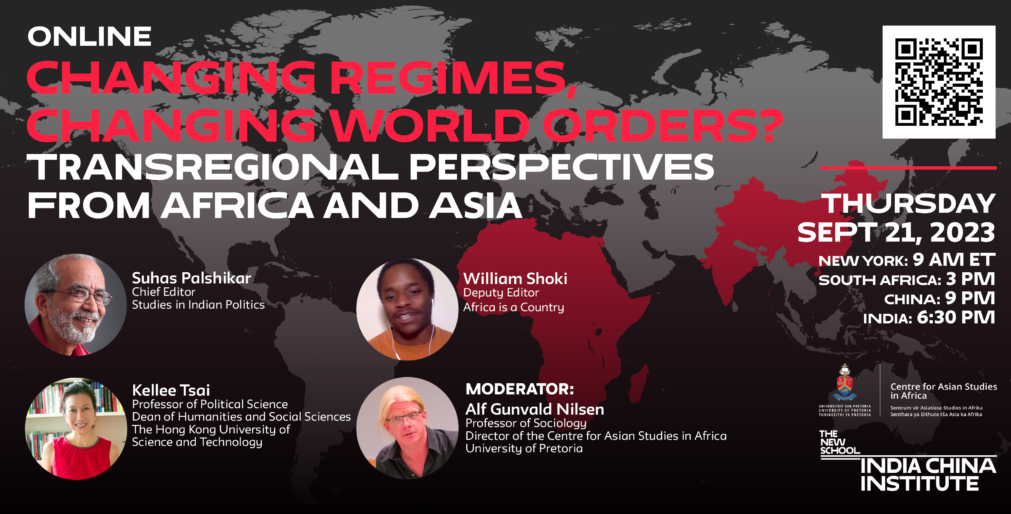
ICI/CASA Webinar: Changing Regimes, Changing World Order? (21 September)
Date: 21 September Speakers:
Kellee S. Tsai, Professor of Political Science, Dean of Humanities and Social Sciences at the Hong Kong University of Science and Technology
William Shoki, Deputy Editor, Africa is a Country
Suhas Palshikar, Chief Editor, Studies in Indian Politics
Moderator: Alf Nilsen, Director, Centre for Asian Studies in Africa, University of Pretoria
Changing Regimes, Changing World Order? Transregional Perspectives from Asia and Africa
The geopolitics of the twenty-first century is increasingly characterized by a transformation of world order. In recent decades, the liberal international order, underpinned since the end of the Cold War by unipolar American hegemony, has been fundamentally destabilized by the rise of emerging powers across the global South – a process spearheaded by China and by organizational formations such as the BRICS. Economically, this process is fuelled by the ascent of dynamic growth centres beyond the Euro-American core of the world-system, and manifest in apparent departures from the policy orthodoxies of market liberalism. In the realm of global governance, southern emerging powers have unsettled the workings of the extant multilateral system and begun crafting an alternative architecture for multilateralism through institutions such as the New Development Bank. How do we understand the nature of the political regimes driving this transformation of world order? This is an urgent question, especially considering deepening trajectories of autocratization across states in the global South. In India, for example, Narendra Modi and the increasingly authoritarian right-wing Hindu nationalist BJP government preside over an unprecedented trajectory of attack on democratic institutions and freedoms. Moreover, under Xi Jinping, China’s intensification of authoritarianism in its one-party state has been concomitant with the rollout of ambitious challenges to the liberal global order, through initiatives on “Global Development” and “Global Security.” And in South Africa, the erosion of the ANC’s post-apartheid hegemony has opened up space for the crystallization of a new right-wing populism grounded in xenophobic conceptions of nationhood and belonging. In this panel, we interrogate the significance and implications of the entangled unfolding of illiberal politics and transformation of world order for understanding the nature of our current turbulent conjuncture. |